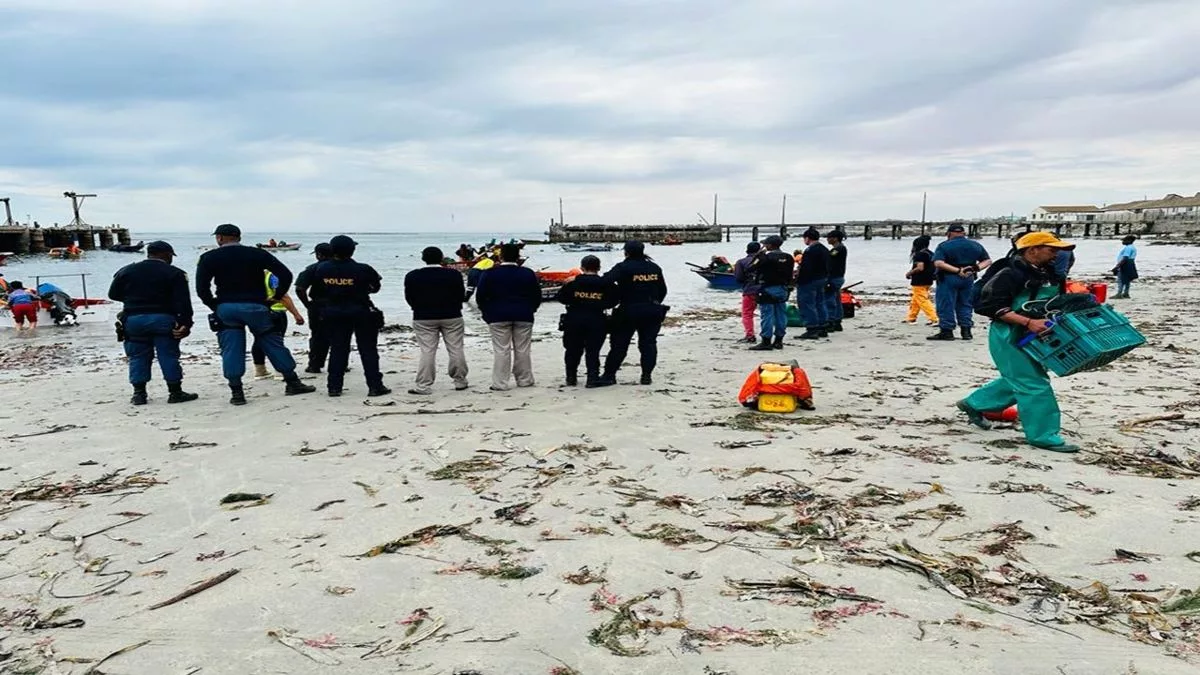The FIFPRO General Assembly gathered world-renowned delegates, special guests, and media personnel to reflect on past achievements and strategize for the future of international football. South African Minister of Sport, Arts, and Culture, Zizi Kodwa, spoke passionately about the importance of post-retirement opportunities for footballers, and advocated for diverse career paths such as coaching, media, and entrepreneurship. The Assembly also addressed challenges such as the continued prevalence of racism in football, emphasizing the multi-dimensional nature of the sport’s societal impact.
How can retired footballers explore post-retirement opportunities?
Retired footballers can explore opportunities in coaching, media industry positions, entrepreneurship, ambassadorial roles, administrative posts, motivational speaking, and talent scouting and recruitment. Minister Kodwa also emphasizes the importance of incorporating a national school sports program, constructing sports facilities, and supplying equipment to schools in rural and underserved communities.
The Dawn of a New Football Era
With the break of dawn, the world-renowned delegates, special guests, and media personnel gathered on the cobblestone streets of a cosmopolitan city for the International Federation of Professional Footballers (FIFPRO) General Assembly. This annual gathering holds a prominent position in the international football calendar, facilitating reflection on past year’s achievements and strategizing for the future. The opening ceremony was graced by Zizi Kodwa, the South African Minister of Sport, Arts, and Culture. Minister Kodwa spoke fervently about acknowledging the significant contributions made within the sport and the pivotal function of FIFPRO as a labour union.
FIFPRO, in its role as an international organisation, strives to represent and unify the voices of professional footballers and their national unions, influencing pivotal decisions related to their profession and enhancing their working conditions and wellbeing. Minister Kodwa underscored the importance of not only focusing on the active playing careers of the members but also examining the realities and opportunities present in their post-playing lives. One of the key issues highlighted by Minister Kodwa was the difficulty footballers face after their retirement, usually around the ages of 34 and 36.
Exploring Post-Retirement Opportunities
Utilizing his profound understanding of the football industry and his genuine commitment to the welfare of players, Minister Kodwa delved into the diverse career opportunities that retired footballers could explore. He advocated for players to nurture their intellectual abilities along with their physical talents, acquire a deep understanding of football industry, and strategize their retirement plans while still in the prime of their careers. Minister Kodwa shed light on the various opportunities accessible to retired players, from coaching and managerial roles to media industry positions, entrepreneurship, ambassadorial roles, administrative posts, motivational speaking, and talent scouting and recruitment.
In discussing the South African Government’s role in fostering sports growth and development, Minister Kodwa highlighted their efforts in constructing sports facilities and supplying equipment to schools in rural and underserved communities. He also emphasized the importance of incorporating a national school sports program and compared these initiatives to countries like the United States, France, and the United Kingdom, where sports contribute significantly to the nation’s economy.
Addressing Challenges and Looking Forward
Despite the enriching dialogue, Minister Kodwa expressed serious concerns about the continued prevalence of racism in football. He pointed out the worrying rise in incidents of discriminatory behaviour in the sport, both online and offline, and called upon FIFPRO to deliberate on how it might contribute to eradicating such misconduct.
The inauguration of the FIFPRO General Assembly was more than just a platform for dialogue about sports; it also offered a noteworthy example of the intersection between sports and socio-political matters. The discussions that took place, the issues that were raised, and the solutions proposed underscore the dynamic and multi-dimensional nature of football, which extends beyond being just a sport to a global institution with substantial societal impact.
In the profound words of Minister Kodwa, the power of sport should act as a catalyst for social unity rather than division. It is clear that this ideal is a work in progress, with forums like the FIFPRO General Assembly playing a critical role in this journey. As we gaze towards the future, we can expect the continued evolution of the football industry, its implications for those who devote their lives to it, and the broader role it plays in shaping society.
What is the FIFPRO General Assembly?
The FIFPRO General Assembly is an annual gathering of world-renowned delegates, special guests, and media personnel in international football to reflect on past achievements and strategize for the future. It is also a platform for FIFPRO to represent and unify the voices of professional footballers and their national unions, influencing pivotal decisions related to their profession and enhancing their working conditions and wellbeing.
What did the South African Minister of Sport, Arts, and Culture speak about at the FIFPRO General Assembly?
The South African Minister of Sport, Arts, and Culture, Zizi Kodwa, spoke passionately about the importance of post-retirement opportunities for footballers, advocating for diverse career paths such as coaching, media, and entrepreneurship. He also addressed the challenges of racism in football and emphasized the multi-dimensional nature of the sport’s societal impact.
What are some post-retirement opportunities for retired footballers?
Retired footballers can explore opportunities in coaching, media industry positions, entrepreneurship, ambassadorial roles, administrative posts, motivational speaking, and talent scouting and recruitment. Minister Kodwa also emphasizes the importance of incorporating a national school sports program, constructing sports facilities, and supplying equipment to schools in rural and underserved communities.
Why is it important to focus on post-retirement opportunities for footballers?
Footballers usually retire around the ages of 34 and 36, and transitioning from a career in football to other fields can be challenging. Focusing on post-retirement opportunities can help footballers plan for their future, nurture their intellectual abilities along with their physical talents, and acquire a deep understanding of the football industry.
What are the South African Government’s efforts in fostering sports growth and development?
The South African Government is constructing sports facilities and supplying equipment to schools in rural and underserved communities. They are also emphasizing the importance of incorporating a national school sports program, similar to countries like the United States, France, and the United Kingdom, where sports contribute significantly to the nation’s economy.
What are some of the challenges facing the football industry?
One of the challenges facing the football industry is the continued prevalence of racism in football. Minister Kodwa pointed out the worrying rise in incidents of discriminatory behavior in the sport, both online and offline, and called upon FIFPRO to deliberate on how it might contribute to eradicating such misconduct.








